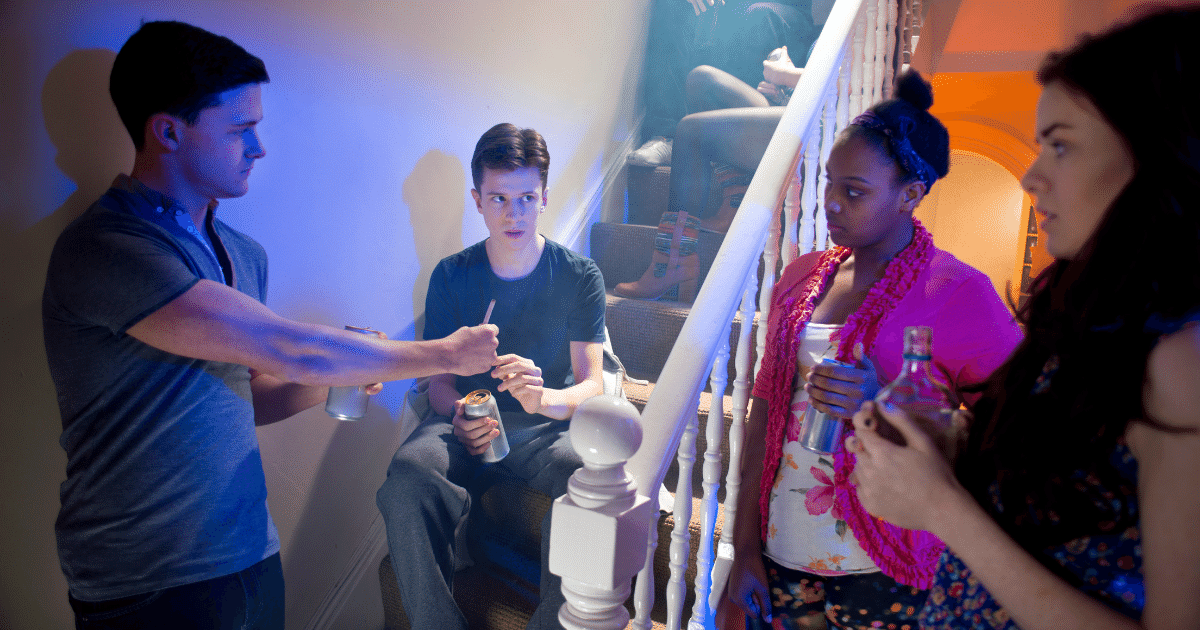Understanding the Risks of Underage Drinking
As children grow there are certain “coming of age” initiations they experience. These landmark moments could include a first concert or major sporting event, a first kiss, prom or getting to stay up past midnight. Most teenagers get a taste of freedom when they turn 16 and get to drive a car. They get to vote at 18. Then, there’s drinking alcohol, which Americans can’t legally do until they turn 21.
However, even though the legal drinking age is set at 21, evidence shows that most people start drinking alcohol before that. Sometimes it’s experimentation, peer pressure or a sign of rebellion, newfound independence or to handle growing pains. Three-quarters of Americans (77%) had their first drink before 21, and six in 10 (60%) say their first drink came as a minor (under 18).
The Pressure to Drink
Underage drinking opens the door to negative health and social consequences. As children age, they experience more life events, not all of which are positive. Puberty hits, their bodies change and they are exposed to outside influences from places like school, friends and pop culture. If they have a chaotic home life or the absence of rules against underage drinking, a child is more likely to use alcohol as a way to cope with stress, peer pressure or in social settings they perceive to be negative.
As a result, young people might make bad grades in school or skip altogether, hang out with people who encourage unhealthy behavior, or worse, become addicted to alcohol. People who use alcohol as a coping mechanism are at a higher risk of developing a substance use disorder. That’s why it’s important for parents to do everything they can to prevent children from participating in underage drinking. Talking to children and teens about the dangers of alcohol is key to protecting them from long-term health and social consequences as they transition into adulthood.
However, education alone won’t prevent risky behavior like underage drinking. It’s equally important for parents to model good behavior for their children, showing them it’s possible to have fun and enjoy life without drinking, or by consuming alcohol responsibly.
For parents who may not know how to approach their children or teens about the dangers of alcohol, this blog post includes evidence-based strategies to help prevent underage drinking.
Why Your Child or Teen Might Start Drinking Alcohol
Research suggests that most people who drink alcohol before their 21st birthday do so between 13-14 years old. Because young people’s brains are still developing into their 20s, your child might be less likely to consider the risks of drinking alcohol during their early years. They are also more susceptible to developing an addiction. The National Institute on Drug Abuse frames it this way:
“The adolescent brain is often likened to a car with a fully functioning gas pedal (the reward system) but weak brakes (the prefrontal cortex).”
There are also external factors that happen around children and teens that could explain why they might start drinking. These factors include:
- History of social and emotional problems (e.g., mental health disorder)
- Major life transitions like moving to a new school or parents’ divorce
- Family history of alcohol abuse or another substance
- Hanging around peers involved in troublesome activities
- School-related stress (grades, sports, bullying)
Warning Signs Your Child or Teen Might be Drinking
At some point, our kids will experience life changes that signal growth. For example, they hit puberty, their bodies change and their workload gets heavier at school. That’s why it’s important for parents to monitor their behavior to make sure they’re not using alcohol to cope with the normal progression of getting older or, more seriously, adverse childhood experiences. One of the best things a parent can do is talk to their child about alcohol and drug use. Don’t be afraid to ask hard questions.
Possible signs that your child or teen is participating in underage drinking include:
- They become easily angered or defensive
- They start performing poorly in school or skipping
- They openly break family rules
- They stop hanging out with old friends and won’t let you meet their new friends
- You find alcohol in their room or the car they drive
Research Says Parents Must Stay Involved in Their Child or Teen’s Lives
Many experts believe that by being active participants in their children’s lives, parents play perhaps the most significant role in protecting them from underage drinking. Having open and honest conversations with children and teens can help parents foster an environment that makes it easier to steer them away from underage drinking. In fact, when specific rules against drinking are in place and the parents model healthy behavior, studies show that children are less likely to drink.
Parents can also help their children and teens avoid alcohol-related problems by:
- Setting and enforcing clear expectations and rules against underage drinking
- Monitoring their children’s behavior
- Monitoring their own discipline skills
- Drinking responsibly, especially in the presence of children and teens
- Talking to children about everyday life
- Motivating children to do fun activities that don’t include drinking alcohol
- Getting to know their children’s friends
- Talking to other parents about the importance of avoiding underage drinking
- Supporting their children’s independence, but setting boundaries
Getting Help for Underage Drinking Problems
It might be hard for a child or teen to admit they have a drinking problem. They might feel too ashamed or embarrassed to go to traditional rehab (residential treatment) for an extended period of time and risk their peers finding out. Still, they need treatment, and an intensive outpatient program (IOP) could be ideal for maintaining privacy.
At Landmark Recovery, our outpatient program allows your teen to get individual counseling and treatment at least four times a week. They can learn how to address their drinking problem and then return home after each session.
If you need help getting your child or teen into one of our programs or need more information on how to talk to them about underage drinking, call 888-448-0302 and speak to a member of our admissions team. Also, visit our locations page to find a treatment center in your area.

Choose Recovery Over Addiction
We're here 24/7 to help you get the care you need to live life on your terms, without drugs or alcohol. Talk to our recovery specialists today and learn about our integrated treatment programs.






